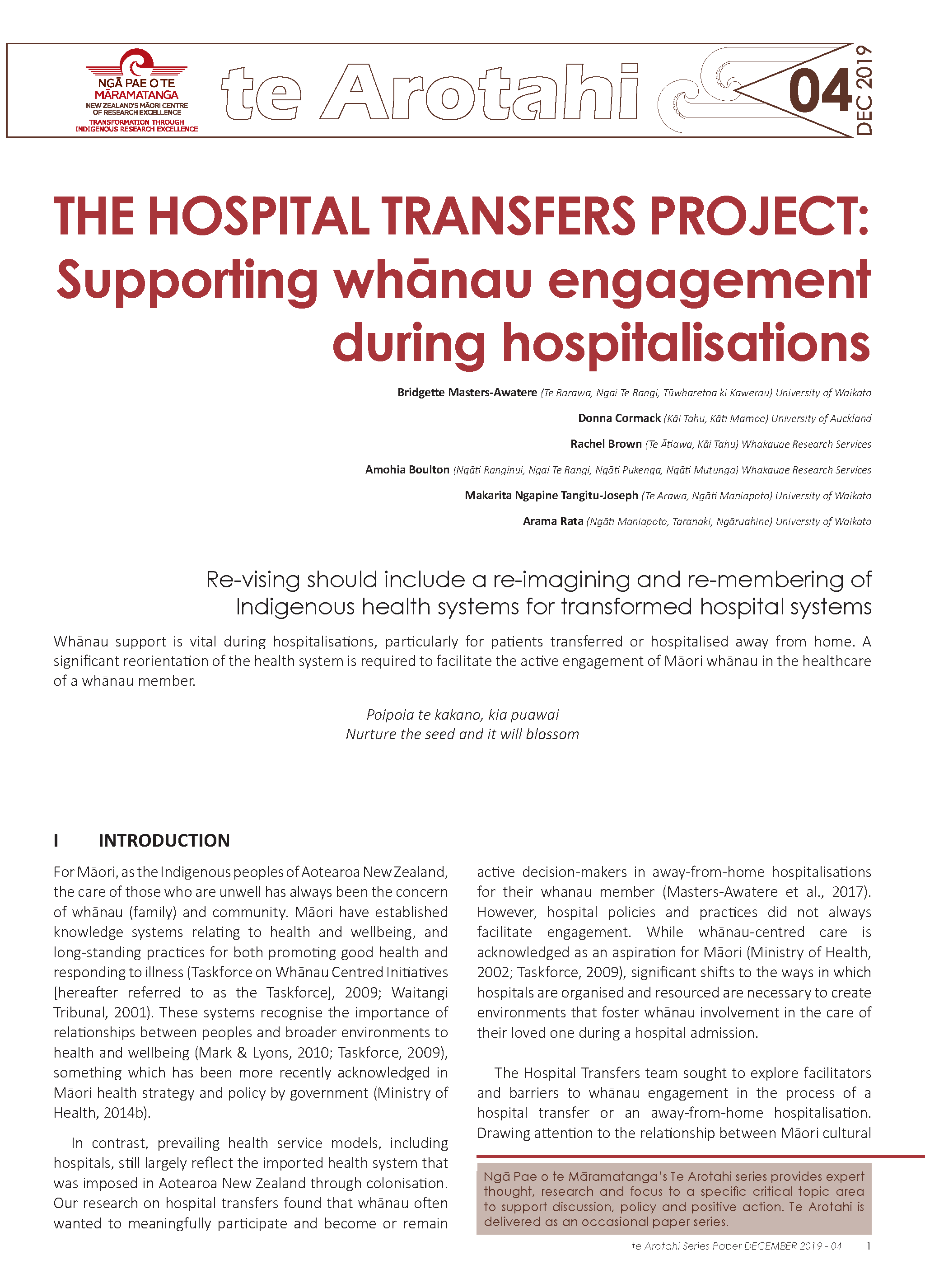
Poipoia te kākano, kia puawai
Nurture the seed and it will blossom
For Māori, as the Indigenous peoples of Aotearoa New Zealand, the care of those who are unwell has always been the concern of whānau (family) and community.
Māori have established knowledge systems relating to health and wellbeing, and long-standing practices for both promoting good health and responding to illness and these systems recognise the importance of relationships between peoples and broader environments to health and wellbeing, something which has been more recently acknowledged in Māori health strategy and policy by government.
This timely and important paper argues that radical and meaningful change is “required at the health system, organisational and practitioner levels to improve implementation of whānau-centred care during hospitalisation.” Ultimately it calls for a re-visioning of Aotearoa New Zealand’s hospital system, including a “re-imagining of alternative approaches and a re-membering of Indigenous healing systems to bring about transformed hospital systems within which whānau aspirations for active involvement and engagement with care are able to be fully realised.”
AUTHORS: Bridgette Masters-Awatere (Te Rarawa, Ngai Te Rangi, Tūwharetoa ki Kawerau) University of Waikato
Donna Cormack (Kāi Tahu, Kāti Mamoe) University of Auckland Rachel Brown (Te tiawa, Kāi Tahu) Whakauae Research Services
Amohia Boulton (Ngāti Ranginui, Ngai Te Rangi, Ngāti Pukenga, Ngāti Mutunga) Whakauae Research Services
Makarita Ngapine Tangitu-Joseph (Te Arawa, Ngāti Maniapoto) University of Waikato
Arama Rata (Ngāti Maniapoto, Taranaki, Ngāruahine) University of Waikato